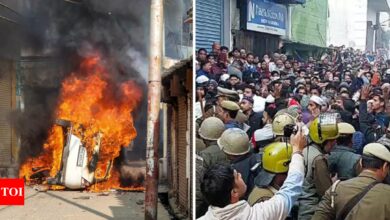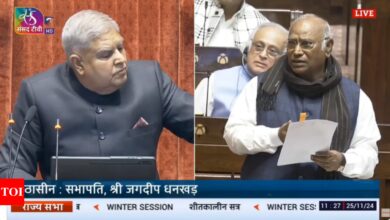India
SC bans ‘bulldozer justice’, calls it unconstitutional, sets norms | India News – Times of India
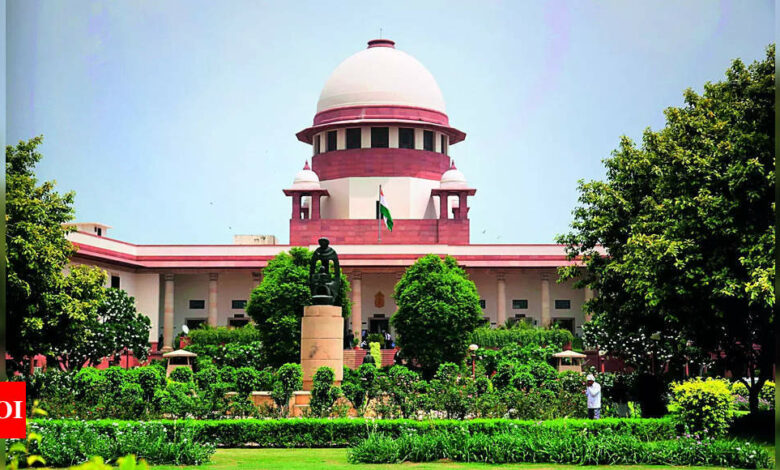
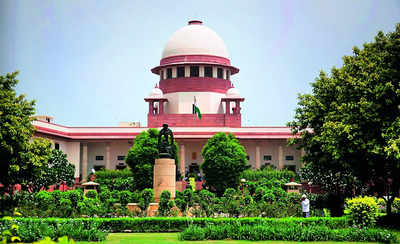
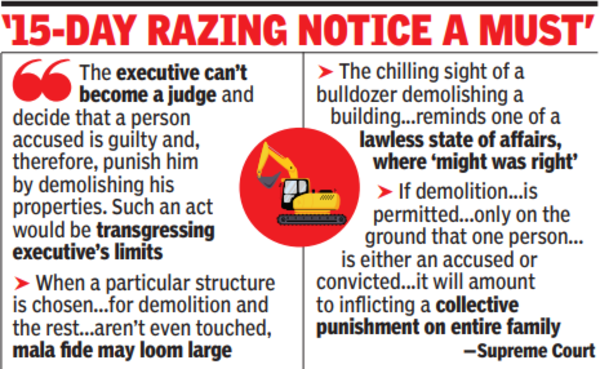

A bench of Justices BR Gavai and KV Viswanathan, taking suo motu cognizance of the demolition of houses and properties of families of accused in many states, especially in Uttar Pradesh, ordered strict adherence to the procedure laid down by the SC for the removal of illegal and warned of dire consequences for officers who indulge in wanton demolition of private property.
“Breaching any of the directions would lead to the initiation of contempt proceedings in addition to prosecution of officers. If the demolition is found to be in violation of the orders of this court, the officers will be held responsible for restitution of the demolished property at his/their expense, in addition to payment of compensation,” the court said.

‘Abuse of power by executives cannot be tolerated by the courts’
Justice Gavai started the 95-page judgment by quoting famous Hindi poet Pradeep to highlight the importance of shelter for a family and said, to have acted without adhering to the principle of due process is reminiscent of a lawless course of events, in which ‘might was right’.”
Justice Gavai pointed out that mere registration of an FIR naming a person, even in a heinous crime, does not erase his right, embodied in the concept of ‘innocent until proven guilty in a court of law’. “The executive cannot prejudge a suspect’s guilt and mete out a disproportionate sentence, even if it is the demolition of a house,” he said.
“There is no room for such idiosyncratic and arbitrary actions in our Constitution, which is based on the foundation of ‘the rule of law’. Such excesses by the executive will have to be dealt with the strong hand of the law. Our constitutional ethos and values would not permit such abuse of power, and such misadventures cannot be tolerated by the court,” Justice Gavai said.
The immediate use of bulldozers to demolish a suspect’s home, co-owned and occupied by other innocent members of the family, amounted to “inflicting collective punishment on them without cause,” the Supreme Court said, underscoring that the right to shelter is part of the right to life guaranteed by Article 21 of the Constitution. The court asked several questions about the practice of tearing down a suspect’s house.
“Can the family be punished by demolishing the property without even being involved in any crime just because they are related to an alleged accused person? What is their mistake if their relative is identified as a suspect in some complaint or FIR? it asked. ‘As is well known, a pious father can have a recalcitrant son and vice versa. Punishing such persons who have no connection with the crime by demolishing the house where they live or the properties belonging to them is nothing but anarchy and would amount to a violation of the right to life guaranteed is established by the Constitution,” it added.
Justices Gavai and Viswanathan said that under the Indian constitutional system and criminal jurisprudence, it is impermissible to demolish a family home just because one of its members was involved in a crime, as it amounted to “imposing of collective punishment to the whole family or to the whole family”. families living in such a structure”.
Saying that any demolition must be carried out with strict adherence to laid down procedure, Solicitor General Tushar Mehta said the court said it has come to light that the authorities have adopted a ‘pick and choose’ attitude towards illegal constructions , which places emphasis on those belonging to the suspect while sparing similar individuals in the area. “If a particular structure is suddenly singled out for demolition and the rest of the similar buildings in the same area are not even touched, malafide may emerge,” the bank said.
“In such cases, where the authorities indulge in arbitrary selection of structures and it is established that shortly before commencement of such action it was established that an occupant of the structure was involved in a criminal case, it could be assumed that the real motive such a demolition proceeding was not the illegal construction, but an action that punished the suspect without even trying him in court,” the report said.
“Without a doubt, such a presumption can be refuted. The authorities will have to convince the court that there was no intention to punish a person accused of demolishing the structure,” the bench added.


